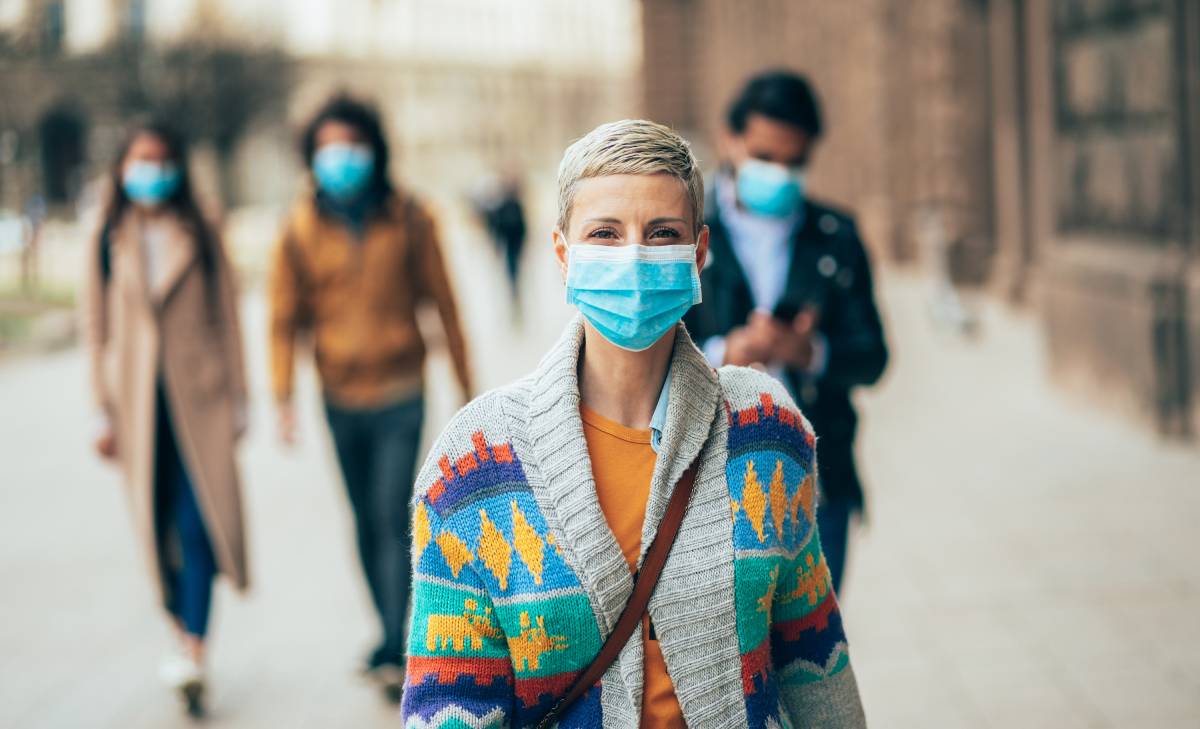COVID-19 Immunity and Re-Infection

The ongoing challenge of the COVID-19 pandemic has been met by rapid vaccine development around the world. In the United States, two mRNA vaccines produced by Pfizer-BioNTech and Moderna were approved for use in December. Immune responses observed in symptomatic clinical trial patients suggest that these vaccines offer highly effective immunity against SARS-CoV-2, the virus causing COVID-19. The importance of conferring immunity across strains of SARS-CoV-2 is emphasized by instances of re-infection in individuals who have not yet been vaccinated. Research studies have also examined the duration of immune response and protection against reinfection after vaccination and after an initial infection.
When an individual is infected by SARS-CoV-2 and acquires COVID-19, their immune response consists of first an innate, nonspecific response and subsequently an antibody-led response specific to SARS-CoV-2. Long-term immunity is conferred by T cells which, among other functions, help to produce antibodies again if they are later reactivated by another infection. Notably, SARS-CoV-2 suppresses activation of the innate immune response. This consists of a reduction in dendritic cells and antiviral type I and type III interferon responses and results in 2-12 days during which an individual is infected but not yet symptomatic (Jeyanathan et al., 2020). Strengthening the innate immune response during this period can help guard against harmful symptoms, including acute respiratory distress syndrome.
The next stage of the SARS-CoV-2 immune response is virus-specific and depends on antibodies, including IgM and IgG antibodies, that develop 1-2 weeks after the onset of infection. Disease severity is positively correlated with the antibody response, which in turn confers longer-term immunity (Jeyanathan, 2020). Asymptomatic individuals, for instance, have the smallest and fastest shrinking antibody immune response. While it is unclear how long antibodies remain, in patients who had SARS-CoV (a different coronavirus), antibody levels were substantially lowered at 1-2 years post-infection (Jeyanathan, 2020).
T cell-mediated immunity bolsters the efficacy and immediacy of long-term immune responses, including in the case of COVID-19. This includes CD4+ T cells and CD8+ T cells that enhance antibody responses and aid in SARS-CoV-2 viral clearance and TH1 cells that were previously shown to affect the severity of SARS-CoV infection (Jeyanathan, 2020). A study showed that rhesus macaques infected by COVID-19 faced risk of re-infection if T-cells were absent, demonstrating the importance of this immune response to preventing re-infection in the long term (McMahan et al., 2020).
The extent to which COVID-19 confers immunity is uncertain. However, Iwasaki reported four individuals with re-infection by a strain of SARS-CoV-2 distinct from their initial infection (2021). Some experienced more severe symptoms during re-infection than the initial infection, raising the concern that immunity against one strain does not reliably confer immunity or protection against the virus.
Vaccination mimics an immune response by introducing non-infectious markers from a virus to the immune system. Later, if the individual is infected by that virus, the antibody-mediated and T cell-mediated responses will have a shorter delay period. Both COVID-19 vaccines approved for use in the U.S., the Pfizer-BioNTech and the Moderna vaccines, introduce viral mRNA into vaccinated cells, which stimulates the immune system and is later destroyed. Further robust long-term data will be needed to support the expectation that approved and developing vaccines provide reliable immunity across strains of SARS-CoV-2 and over time, protecting individuals against infection and reinfection.
References
Iwasaki, A. (2021). What re-infections mean for COVID-19. The Lancet. Infectious Diseases, 21(1), 3–5. https://doi.org/10.1016/S1473-3099(20)30783-0
Jeyanathan, M., Afkhami, S., Smaill, F., Miller, M. S., Lichty, B. D., & Xing, Z. (2020). Immunological considerations for COVID-19 vaccine strategies. Nature Reviews. Immunology, 1–18. https://doi.org/10.1038/s41577-020-00434-6
McMahan, K., Yu, J., Mercado, N. B., et al. (2020). Correlates of protection against SARS-CoV-2 in rhesus macaques. Nature, 1–8. https://doi.org/10.1038/s41586-020-03041-6
